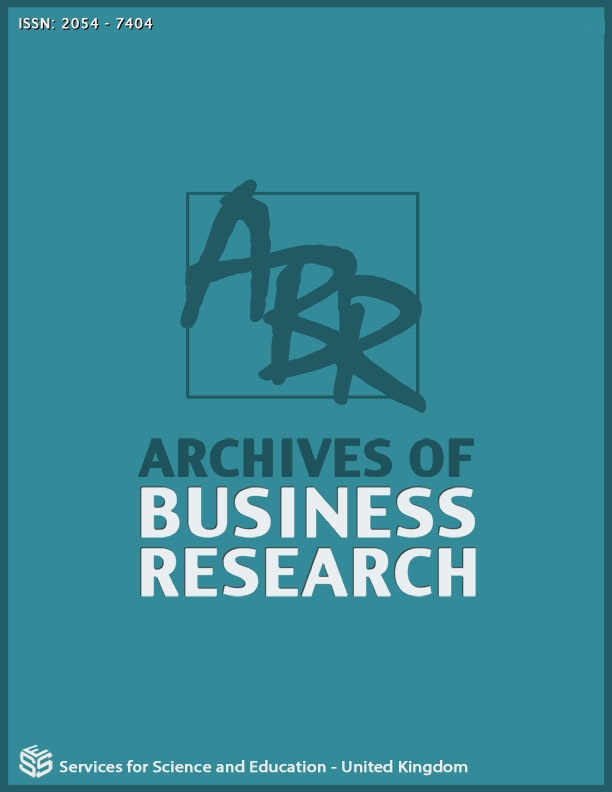Exchange Rate Management and Import Financing in Nigeria: An Econometric Analysis
DOI:
https://doi.org/10.14738/abr.1111.15934Keywords:
Foreign Portfolio Investment, Foreign Direct Investment, Import Financing, Inflation Rate, Interest Rate, Exchange RateAbstract
Nigeria relies heavily on imports, requiring considerable foreign exchange to settle its trade obligations. However, the demand for foreign currency far exceeds the available supply, resulting in constant fluctuations in the exchange rate. The study examined the impact of exchange rate management (proxied by the exchange rate, interest rate, inflation rate, foreign direct investment, and foreign portfolio investment) on import financing from 2000 to 2022. The Augmented Dickey-Fuller (ADF) test was used to check the stationarity of the data. Likewise, the Bound Test for Co-integration was used to assess the long-term relationship between the variables. Finally, the study adopted the Autoregressive Distributed Lag (ARDL) model to evaluate the relationship among the variables. The findings revealed that foreign direct investment, foreign portfolio investment, exchange rate, inflation rate, and interest rate jointly and significantly influenced import financing in Nigeria. The study recommended that policymakers focus on the supply side of foreign exchange to boost foreign exchange earnings by providing incentives to exporters while concurrently reducing unnecessary demand by restricting the import of certain goods, thereby effectively conserving foreign exchange reserves.
Downloads
Published
How to Cite
Issue
Section
License
Copyright (c) 2023 Samuel. O. Dada, Wale-Awe, O. I., Femi-Olagundoye, Mercy

This work is licensed under a Creative Commons Attribution 4.0 International License.






